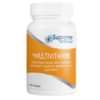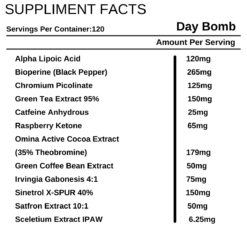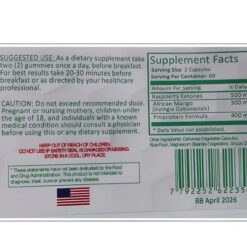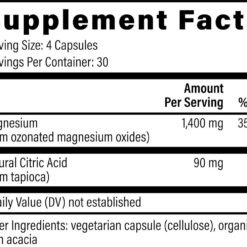Fuel Your Vitality
B vitamins play a crucial role in maintaining overall health and well-being. Deficiencies may lead to serious health issues.
Natural B vitamins are mostly found in grains, but unfortunately, many people are allergic to grains, while others cannot extract the vitamins from the food. In these cases, Vitamin B Supplementation is the best option.
When supplementing B Vitamins, it is important to understand the difference between active and inactive nutrients.
1.
Active Nutrients are in their bio-available form, meaning they can be directly absorbed and utilized by the body without any conversion. This makes them more efficient in supporting bodily functions.
2.
Inactive Nutrients require conversion (or methylation) by the liver to become active. Many people cannot methylate and as a result, a significant portion of inactive B vitamins may be eliminated from the body before they can be used.
Two factors affect the conversion (methylation) process:
Compromised liver
MTHFR Gene mutation
Here is the detailed discussion.
Here’s why B Vitamins are so important:
- Energy Production
Function: B vitamins, particularly B1 (thiamine), B2 (riboflavin), B3 (niacin), B5 (pantothenic acid), and B7 (biotin), are essential for converting carbohydrates, fats, and proteins into energy.
Impact: Without adequate B vitamins, your body’s energy production can slow down, leading to fatigue and decreased physical and mental performance. - Nervous System Health
Function: B vitamins, especially B6 (pyridoxine), B9 (folate), and B12 (cobalamin), are vital for the proper functioning of the nervous system. They support the formation of neurotransmitters, such as serotonin and dopamine, which regulate mood, cognition, and sleep.
Impact: Deficiency in these vitamins can lead to neurological issues, such as depression, anxiety, memory problems, and even nerve damage. - Red Blood Cell Formation
Function: Vitamins B6, B9, and B12 are crucial for the production and maturation of red blood cells.
Impact: Deficiencies in these vitamins can result in anemia, leading to symptoms like fatigue, weakness, and shortness of breath. Proper red blood cell production is essential for transporting oxygen throughout the body. - DNA Synthesis and Repair
Function: Folate (B9) and B12 are key players in DNA synthesis and repair, which is crucial for cell division and overall cellular health.
Impact: A deficiency in these vitamins can lead to impaired DNA synthesis, potentially causing issues such as developmental abnormalities in fetuses (e.g., neural tube defects) and an increased risk of certain cancers. - Cardiovascular Health
Function: B6, B9, and B12 help regulate homocysteine levels, an amino acid in the blood. High homocysteine levels are linked to an increased risk of cardiovascular diseases, such as heart disease and stroke.
Impact: Adequate intake of these vitamins helps maintain healthy homocysteine levels, thereby supporting cardiovascular health. - Immune Function
Function: B vitamins, especially B6, play a role in supporting the immune system by aiding in the production of white blood cells and antibodies, which are essential for fighting infections.
Impact: A deficiency in B vitamins can weaken the immune response, making the body more susceptible to infections and illnesses. - Skin, Hair, and Nail Health
Function: Vitamins B2, B3, B5, and B7 are important for maintaining healthy skin, hair, and nails. They contribute to cell regeneration, repair, and the production of keratin, a protein that strengthens hair and nails.
Impact: Deficiencies in these vitamins can lead to skin conditions like dermatitis, hair loss, and brittle nails. - Mental Health and Mood Regulation
Function: B vitamins, particularly B6, B9, and B12, are involved in the production of neurotransmitters that regulate mood and cognitive function.
Impact: Low levels of these vitamins have been linked to mood disorders, such as depression and anxiety, as well as cognitive decline. - Metabolism and Detoxification
Function: B vitamins, especially B6 and B12, are involved in methylation processes that help the body detoxify and metabolize various substances.
Impact: Efficient detoxification is vital for eliminating toxins from the body and reducing the risk of chronic diseases.
Conclusion
B vitamins are essential for a wide range of physiological functions, from energy production and nervous system health to cardiovascular support and immune function. Ensuring adequate intake of these vitamins through diet or supplementation is crucial for maintaining optimal health and preventing deficiencies that can lead to serious health issues.
The MTHFR (methylenetetrahydrofolate reductase) gene mutation impair the body’s ability to convert inactive forms of B vitamins into their active forms, which are crucial for the methylation process.
MTHFR Mutation:
Function: The MTHFR enzyme plays a key role in processing amino acids, specifically homocysteine, into methionine, which is essential for DNA methylation.
Impact: Mutations in the MTHFR gene can lead to elevated levels of homocysteine and reduced levels of methionine, disrupting the methylation process. This can affect various bodily functions, including DNA repair, neurotransmitter production, and detoxification.
People with MTHFR mutations may experience a range of health issues, including cardiovascular problems, neurological disorders, and increased risk of certain cancers.
Approximately 30% to 50% of the global population carries a mutation in the MTHFR gene1.
MTHFR mutations can have various health implications due to their impact on the body’s ability to process folate and homocysteine. Here are some potential health issues associated with MTHFR mutations:
Cardiovascular Problems:
Elevated homocysteine levels, resulting from impaired methylation, can increase the risk of cardiovascular diseases, including heart attacks and strokes.
Neurological Disorders:
MTHFR mutations can affect neurotransmitter production, potentially leading to conditions such as depression, anxiety, and other mood disorders.
Pregnancy Complications:
Women with MTHFR mutations may have a higher risk of complications such as recurrent miscarriages, preeclampsia, and neural tube defects in their babies.
Chronic Fatigue and Fibromyalgia:
Some individuals with MTHFR mutations report chronic fatigue, fibromyalgia, and other chronic pain conditions.
Increased Cancer Risk:
Impaired DNA methylation can lead to DNA damage and an increased risk of certain cancers, including colorectal and breast cancer.
Detoxification Issues:
Methylation is crucial for detoxification processes in the liver. MTHFR mutations can impair the body’s ability to detoxify, leading to a buildup of toxins.
Managing these health implications often involves lifestyle changes, dietary adjustments, and supplementation with active forms of B vitamins, such as methylfolate and methylcobalamin.
Another important factor, is a compromised liver.
The liver can be negatively affected by factors such as excessive alcohol consumption, viral infections (like Hepatitis B and C), non-alcoholic fatty liver disease (NAFLD), exposure to toxins and chemicals, poor diet, obesity, chronic drug use, autoimmune diseases, genetic disorders, and lack of physical activity. These factors can lead to liver damage, impairing its ability to methylate, detoxify, metabolize, and regulate hormones.
Several factors can negatively affect the liver, impairing its ability to perform vital functions such as detoxification, metabolism, and hormone regulation. Here are some of the main contributors:
1. Excessive Alcohol Consumption
Impact: Alcohol is a major cause of liver damage. Chronic drinking can lead to fatty liver, alcoholic hepatitis, and eventually cirrhosis, a condition where liver tissue is replaced by scar tissue, leading to liver failure.
2. Viral Infections
Impact: Hepatitis viruses, particularly Hepatitis B and C, can cause inflammation and damage to liver cells. Chronic hepatitis infections can lead to fibrosis, cirrhosis, and an increased risk of liver cancer.
3. Non-Alcoholic Fatty Liver Disease (NAFLD)
Impact: NAFLD is characterized by the accumulation of excess fat in liver cells, not related to alcohol consumption. It is often associated with obesity, diabetes, and metabolic syndrome. Over time, NAFLD can progress to non-alcoholic steatohepatitis (NASH), cirrhosis, and liver cancer.
4. Toxins and Chemicals
Impact: Exposure to certain toxins, chemicals, and industrial pollutants can damage liver cells. This includes long-term use of certain medications, overuse of acetaminophen (Tylenol), and exposure to environmental toxins like pesticides.
5. Poor Diet
Impact: A diet high in processed foods, sugars, and unhealthy fats can contribute to liver damage by promoting obesity, insulin resistance, and fatty liver disease. A lack of essential nutrients, particularly antioxidants, can also impair liver function.
6. Obesity
Impact: Excess body weight, especially visceral fat around the abdomen, increases the risk of developing NAFLD, which can progress to more severe liver conditions.
7. Chronic Drug Use
Impact: Long-term use of certain prescription and over-the-counter drugs, including NSAIDs, antibiotics, and some cholesterol-lowering medications, can strain the liver and lead to drug-induced liver injury.
8. Autoimmune Diseases
Impact: Autoimmune conditions like autoimmune hepatitis cause the immune system to attack liver cells, leading to inflammation and damage.
9. Genetic Disorders
Impact: Certain inherited conditions, such as hemochromatosis (iron overload) and Wilson’s disease (copper accumulation), can lead to liver damage if not properly managed.
10. Infections and Parasites
Impact: Infections like malaria, schistosomiasis, and other parasitic diseases can affect the liver, leading to inflammation and damage.
11. Environmental Factors
Impact: Long-term exposure to environmental pollutants, including heavy metals, can contribute to liver damage and impair its detoxification processes.
12. Lack of Physical Activity
Impact: A sedentary lifestyle can contribute to obesity and insulin resistance, increasing the risk of NAFLD and other liver-related conditions.
Conclusion
- Some people are born with the MTHFR gene mutation, and cannot methylate or absorb B vitamins.
- Even without the gene mutation, B vitamins may nor be methylated and absorbed due to a compromised liver. The can be negatively impacted by a variety of factors, including excessive alcohol use, viral infections, poor diet, obesity, and exposure to toxins.
What’s in the box
1 x Bottle Temple Foods B-Better with Methylated & Active Vitamins (Select Option)
Disclaimer
DISCLAIMER: This product may be a complementary medicine and/or not have been evaluated and verified by the South African Health Products Regulatory Authority for its quality, safety or intended use. Use of this product is therefore not intended to compensate for diagnosis, treatment, cure, or mitigation of medical conditions and must not substitute the obtaining of medical advice from a registered health professional for any health or health-related conditions.
Only logged in customers who have purchased this product may leave a review.
Related products
Vitamins & Minerals
Vitamins & Minerals
Vitamins & Minerals
Oxy-Powder 120s – Oxygen Based Safe and Natural Colon Cleanser
Vitamins & Minerals
Vitamins & Minerals
Vitamins & Minerals
Vitamins & Minerals
Vitamins & Minerals

























Reviews
There are no reviews yet.